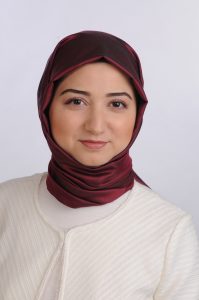The first online seminar of 2023 will take place on February 16th from 16:00-17:00. The keynote speaker will be Dr. Christian Frezza of the CECAD, University of Cologne. He will be joined by Merve Erdem of the University hospital Aachen.

“The chronology of Fumarate Hydratase Loss”
Dr. Christian Frezza is the Alexander von Humboldt Professor of Metabolomics in Ageing, at CECAD, at the University of Cologne. He studied Medicinal Chemistry at the University of Padova, Italy, and gained his MSc in 2002, after a period of research on mitochondrial toxicity induced by photoactivable anticancer drugs. Christian then joined the laboratory of Luca Scorrano in Padova to start a PhD on mitochondrial dynamics and apoptosis. In 2008, he moved to the Beatson Institute of Cancer Research in Glasgow as recipient of an EMBO Long Term Fellowship, where he investigated the role of mitochondrial defects in tumorigenesis. He moved to the MRC Cancer Unit in 2012 as tenure track Group Leader and became a Programme Leader in 2017. In 2021 he moved to CECAD to establish his laboratory in Germany. His laboratory is mainly interested in investigating the emerging connection between cancer and metabolism, with a particular focus on mitochondrial metabolism. By using a combination of biochemistry, metabolomics, and systems biology he investigates the role of altered metabolism in cancer with the aim to understand how metabolic transformation regulates the process of tumorigenesis. His aim is to exploit these findings to establish novel therapeutic strategies and diagnostic tools for cancer.

“Diverging effects of carbohydrate-restricted diets on murine liver cancer progression”
Merve Erdem is a postdoctoral researcher in Molecular Tumor Biology Lab at RWTH Aachen University Hospital. She studied Molecular Biology and Genetics followed by a master degree on cancer research in Turkey. In her PhD, Merve joined to the laboratory of Thorsten Cramer in Germany to study cancer cachexia in liver cancer. Her research at the moment focuses on the effects of dietary carbohydrate restriction on cancer progression and survival of hepatocellular carcinoma in a murine model. The project continues to investigate the observed significant inhibition of tumor progression using different forms of dietary carbohydrate restriction, regarding tumor microenvironment and immune cells.
